Reading comprehension Normal Life Science Worksheets for Ages 6-9
10 filtered results
-
From - To
Discover engaging "Reading Comprehension Normal Life Science Worksheets for Ages 6-9" designed to ignite young minds' curiosity. Perfect for early elementary students, these worksheets blend exciting life science topics with reading comprehension activities to enhance understanding and retention. Each printable worksheet offers fun and educational content to develop critical thinking while nurturing a love for science and reading. Explore a variety of subjects from animal habitats to plant life cycles, tailored to align with curriculum standards and boost learning skills. Download now to make learning interactive and enjoyable for young learners!
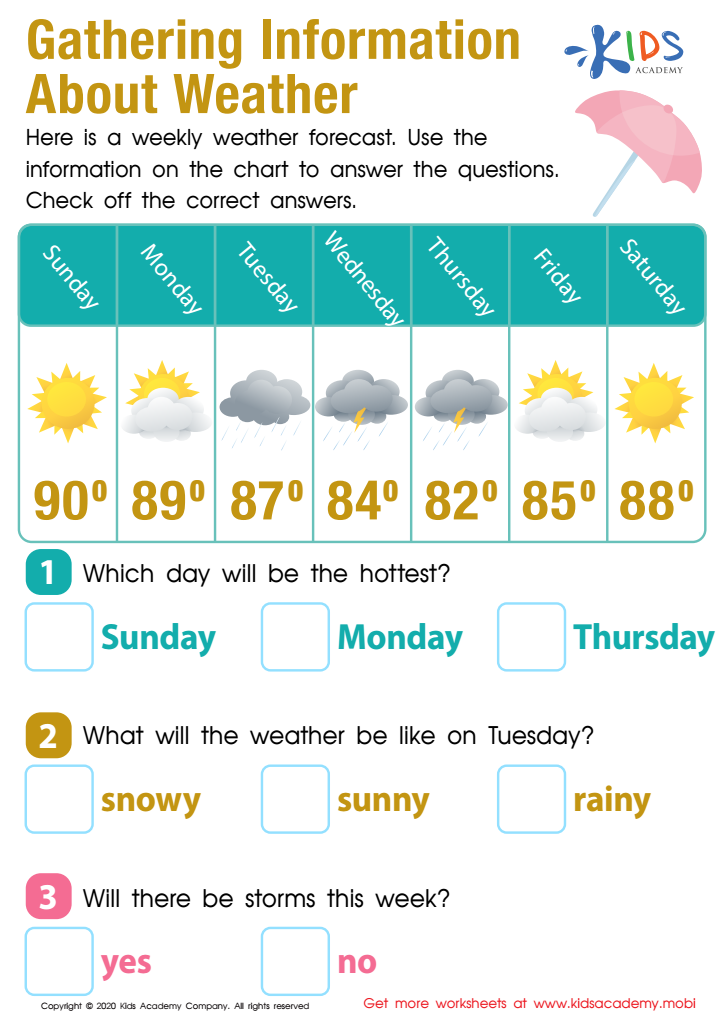

Gathering Information About the Weather Worksheet
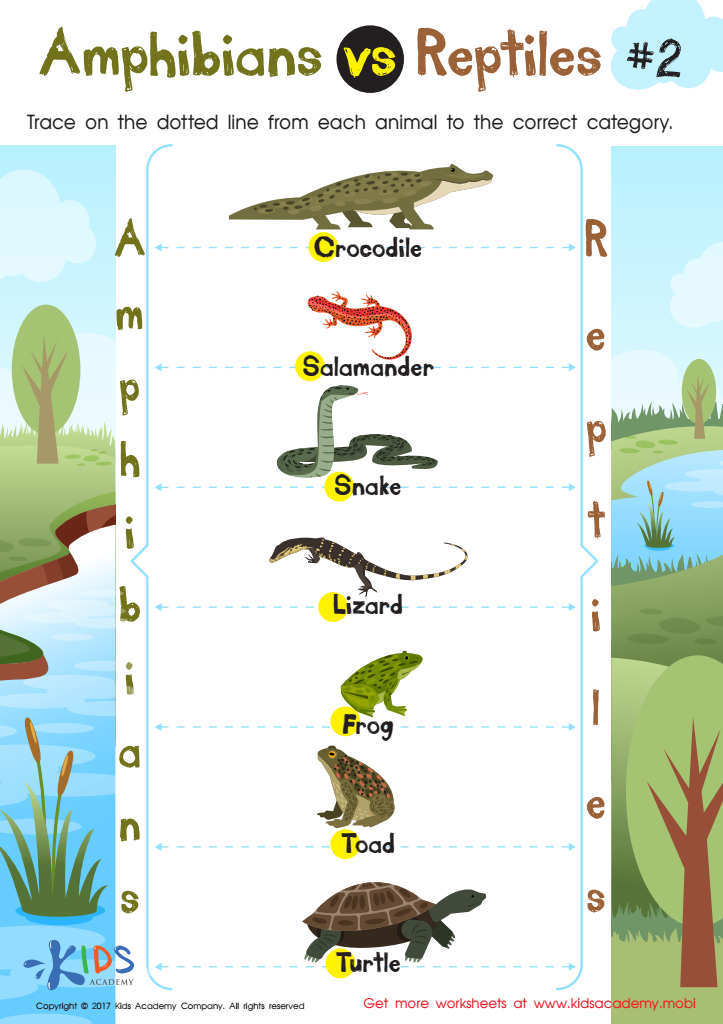

Amphibians vs Reptiles Worksheet for 3rd Grade
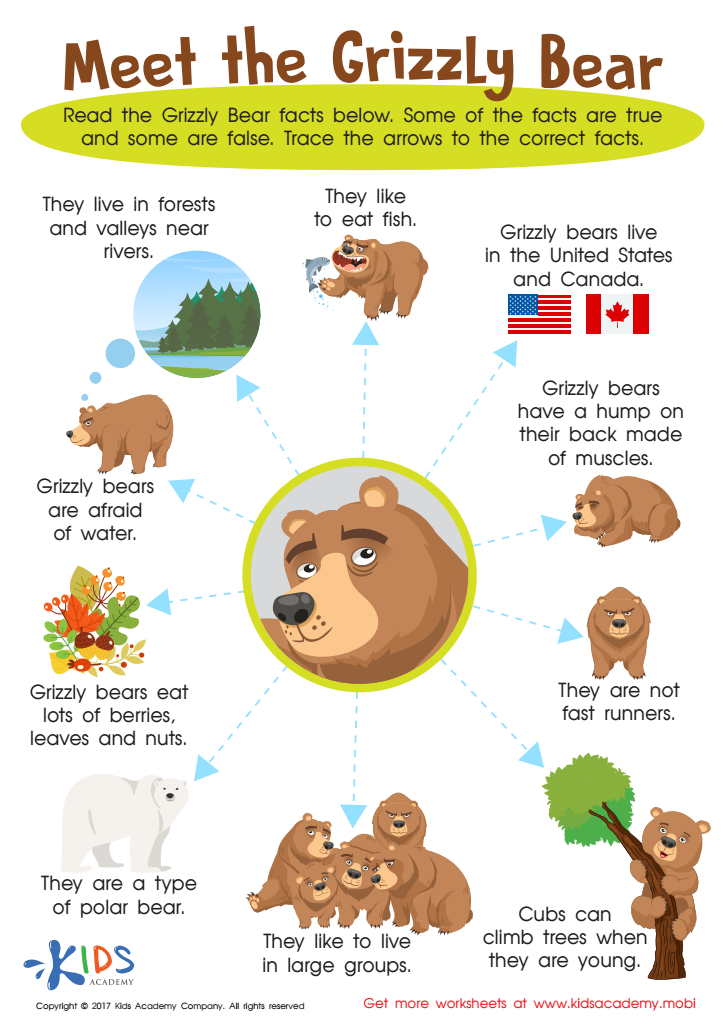

Grizzly Bear Facts Worksheet


Herbivores Printable


Carnivores Worksheet
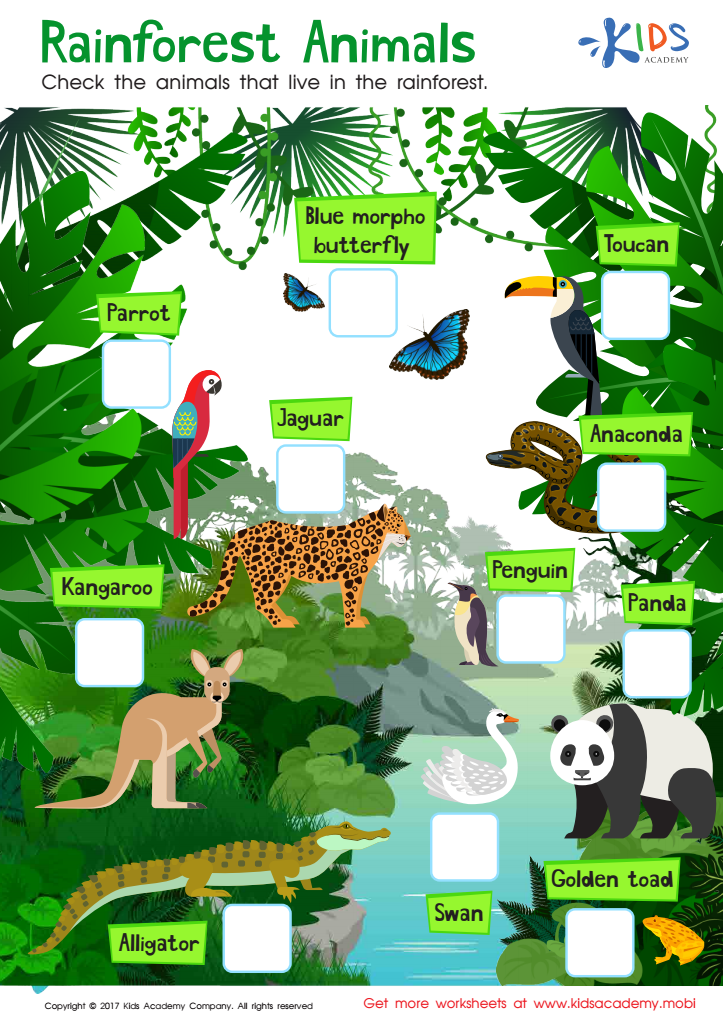

Rainforest Animals Worksheet
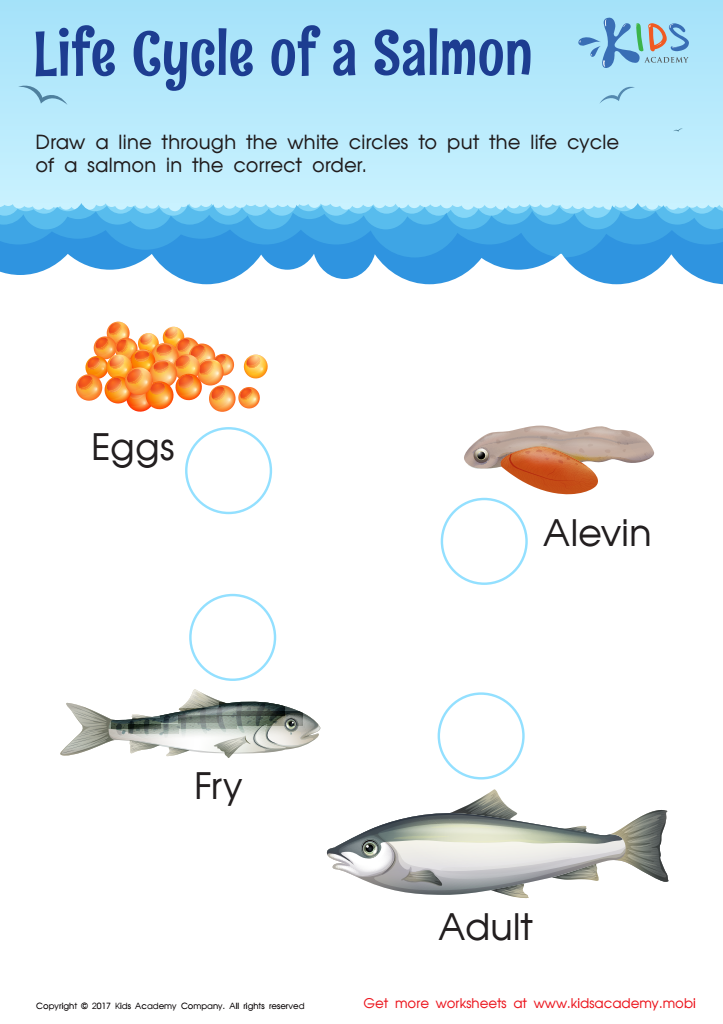

Cycle Of Salmon Worksheet
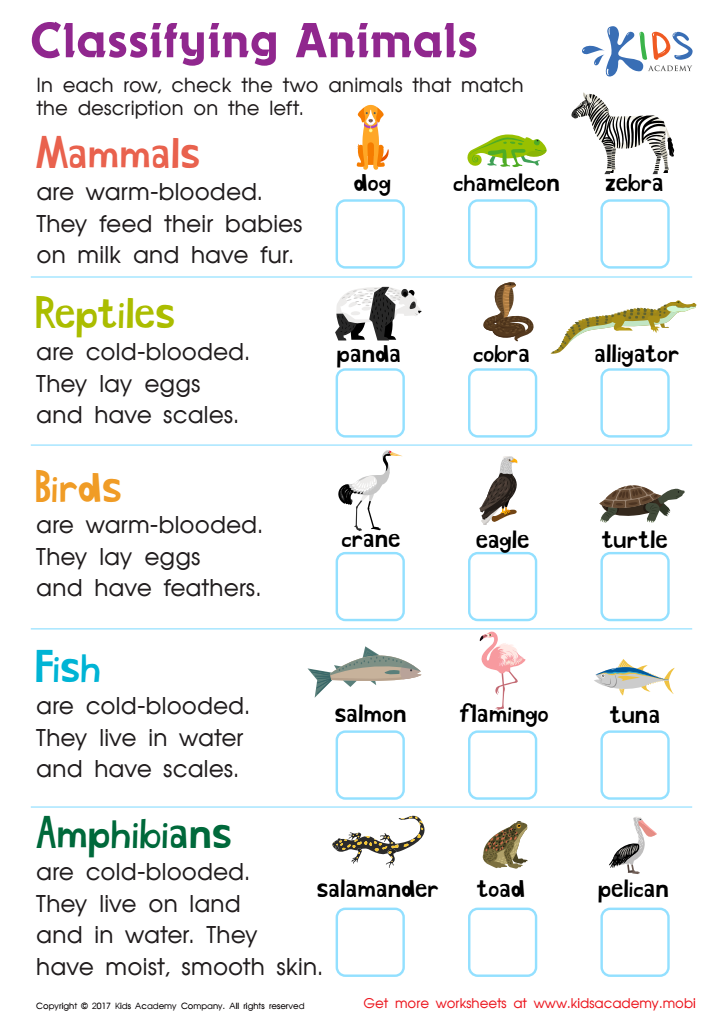

Classifying Animals Worksheet
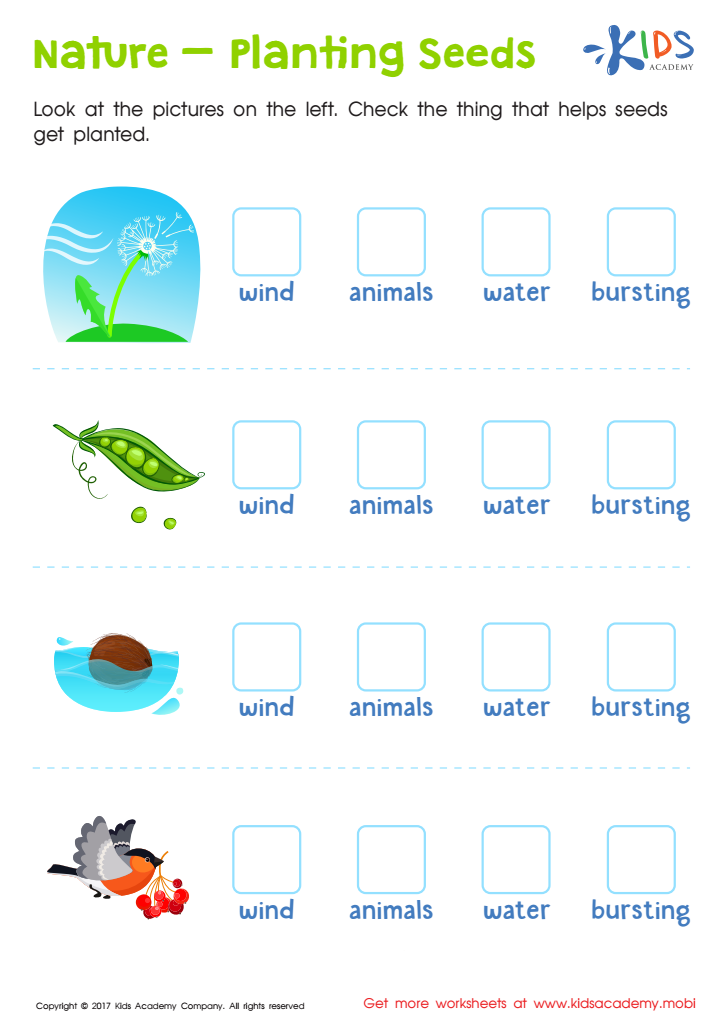

Nature Planting Seeds Worksheet
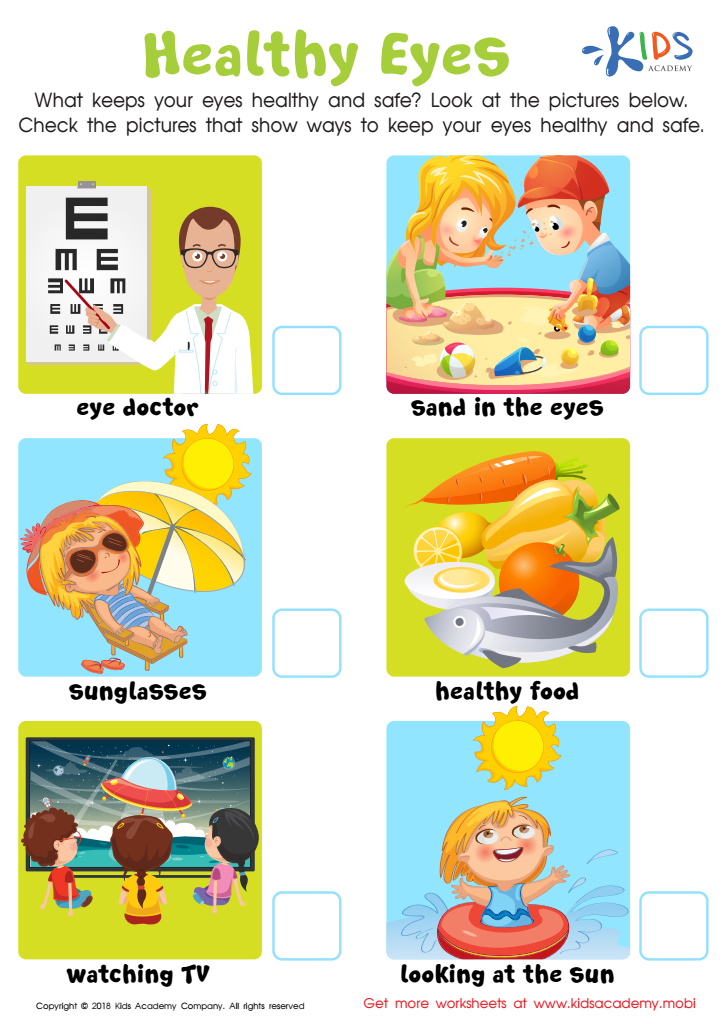

Healthy Eyes Worksheet
Reading comprehension is crucial for young children, especially in the realm of life sciences, as it lays the foundation for lifelong learning and critical thinking. For children ages 6-9, developing the ability to understand and interpret scientific texts enables them to grasp basic concepts about the world around them. This age is a pivotal period when their cognitive abilities are rapidly expanding, making it an ideal time to nurture a curiosity about nature, animals, plants, and the environment.
When children comprehend what they read, they can link new information to their existing knowledge. This skill empowers them to explore more complex subjects as they progress through school and life. Effective reading comprehension aids in fostering a love of learning, boosts confidence, and improves academic performance across various subjects, not just science.
From the teacher's perspective, guiding children to comprehend scientific texts can create engaging, hands-on learning experiences that inspire curiosity and creativity. For parents, investing time in improving their child’s reading comprehension in life sciences can lead to meaningful discussions, help in understanding everyday phenomena, and nurture a scientifically literate individual who appreciates the world.
Ultimately, strong reading comprehension skills in young children build a foundation for academic success and enable them to make informed decisions about scientific and environmental issues throughout their lives.
 Assign to My Students
Assign to My Students


%20(1).jpg)












